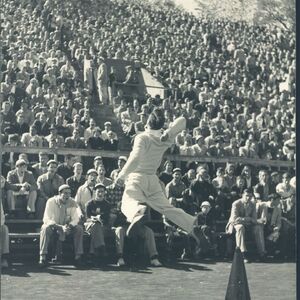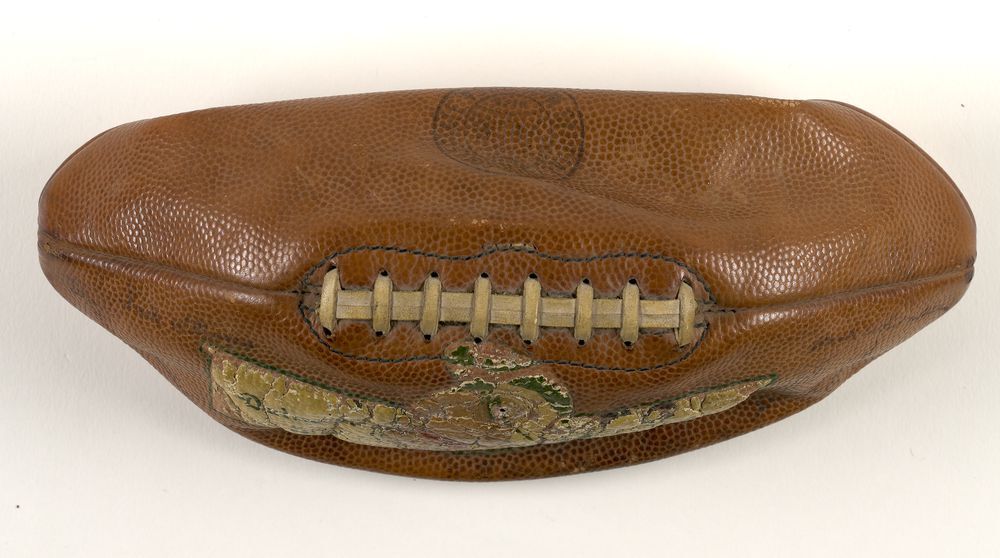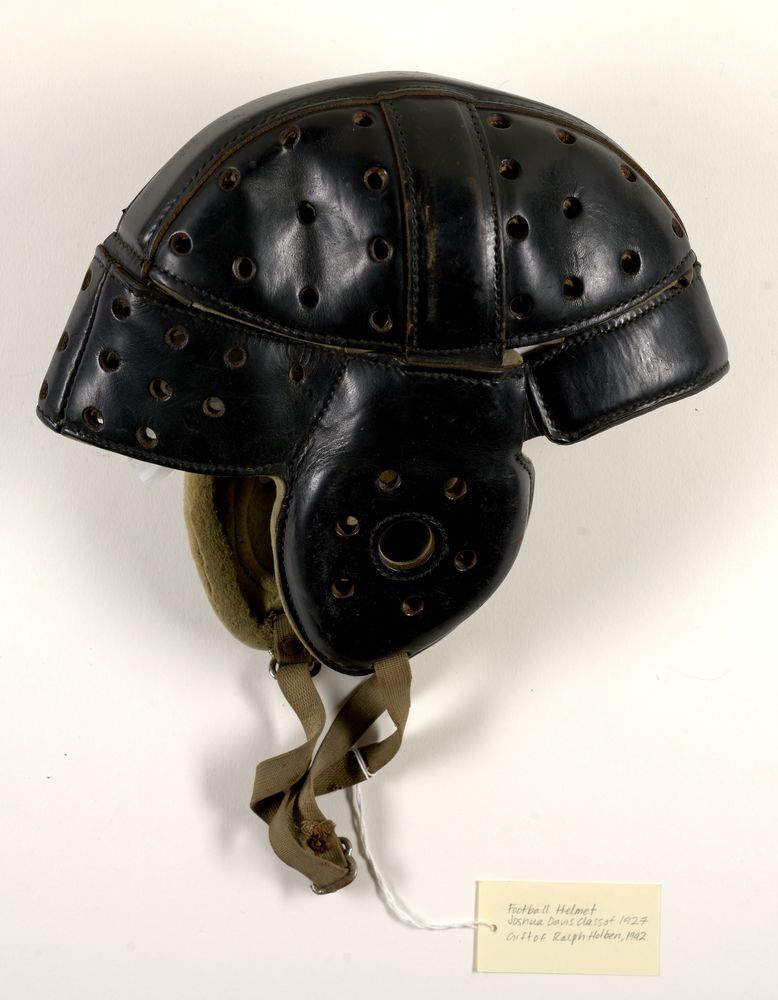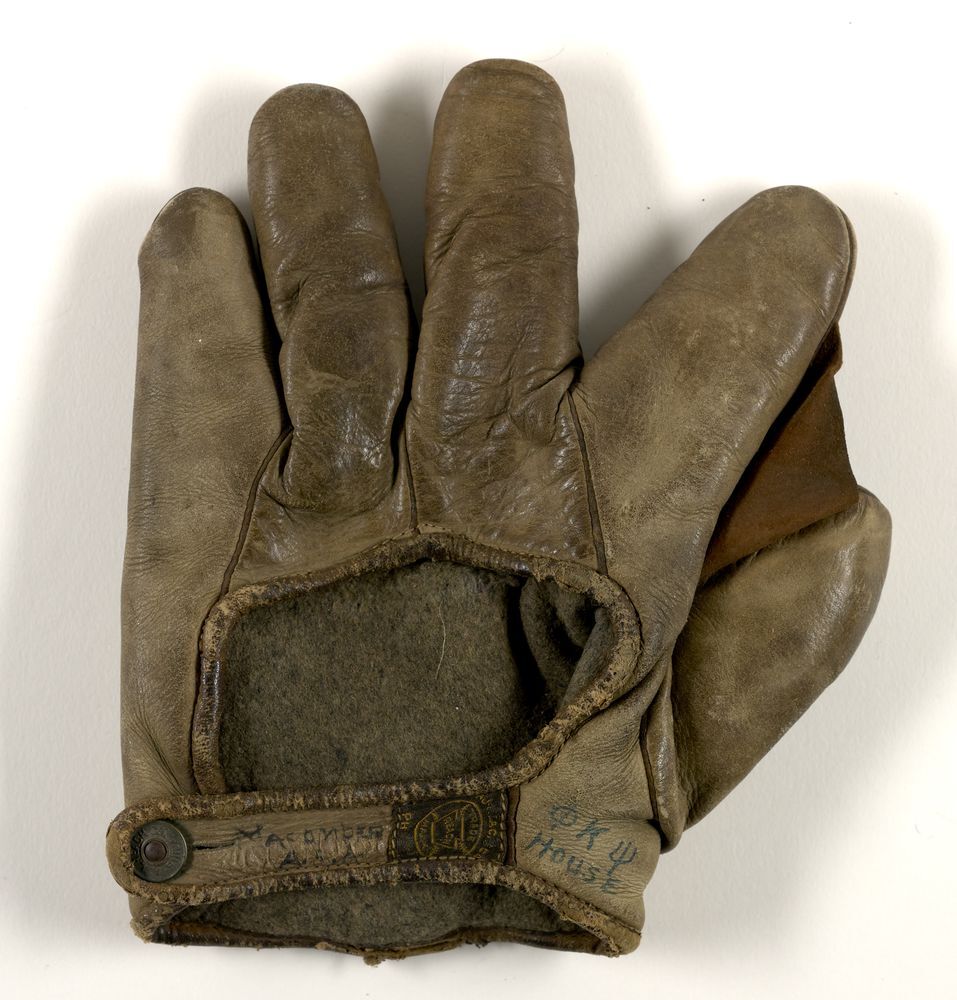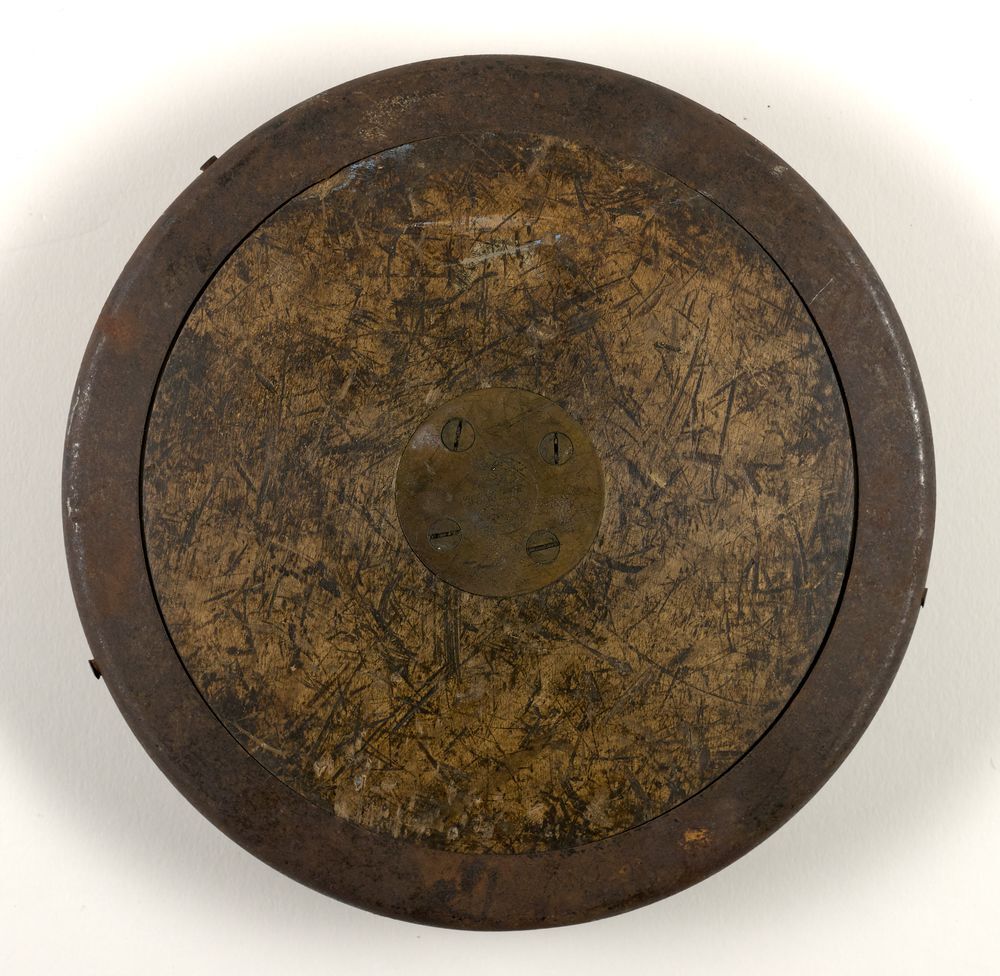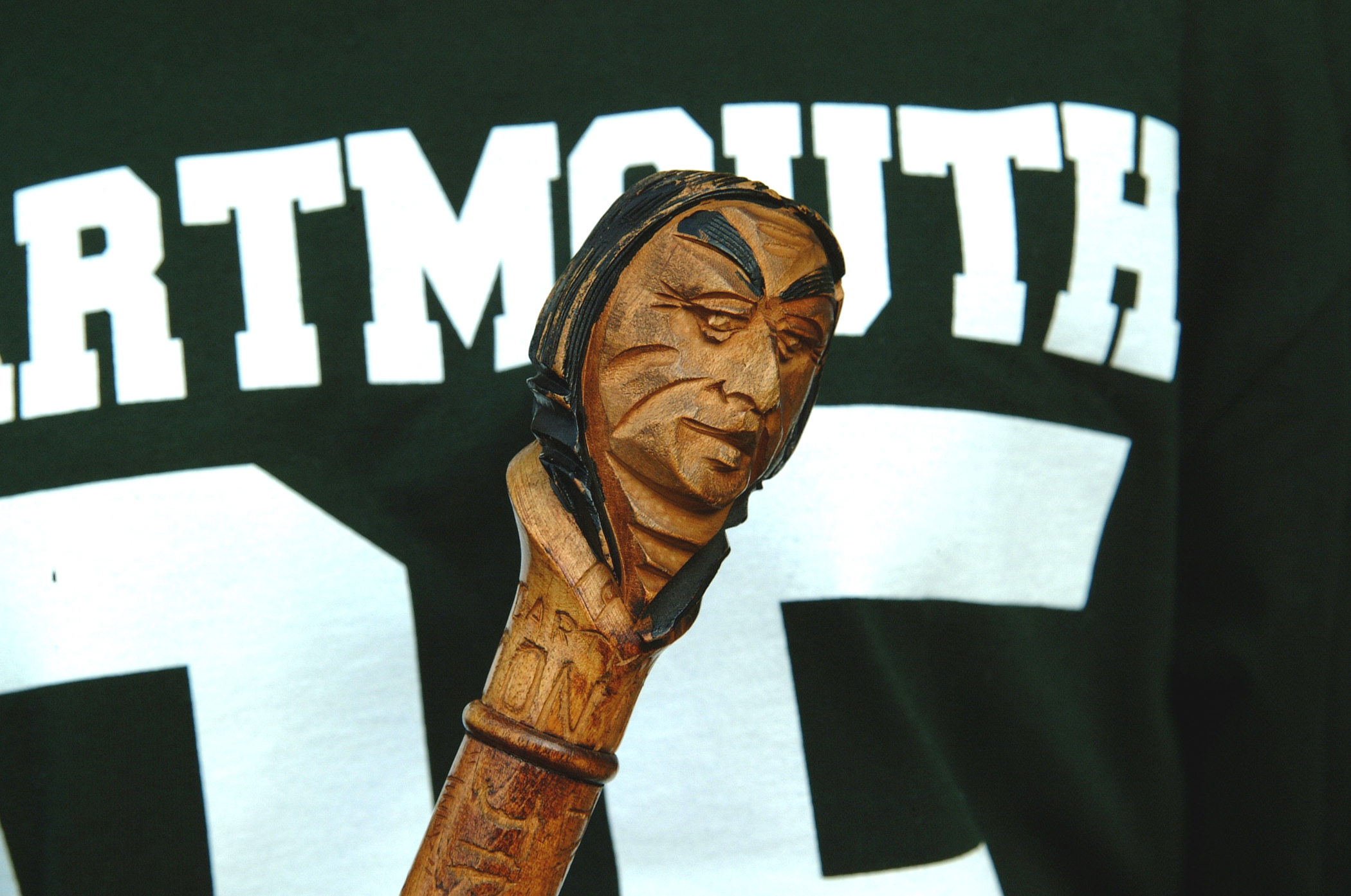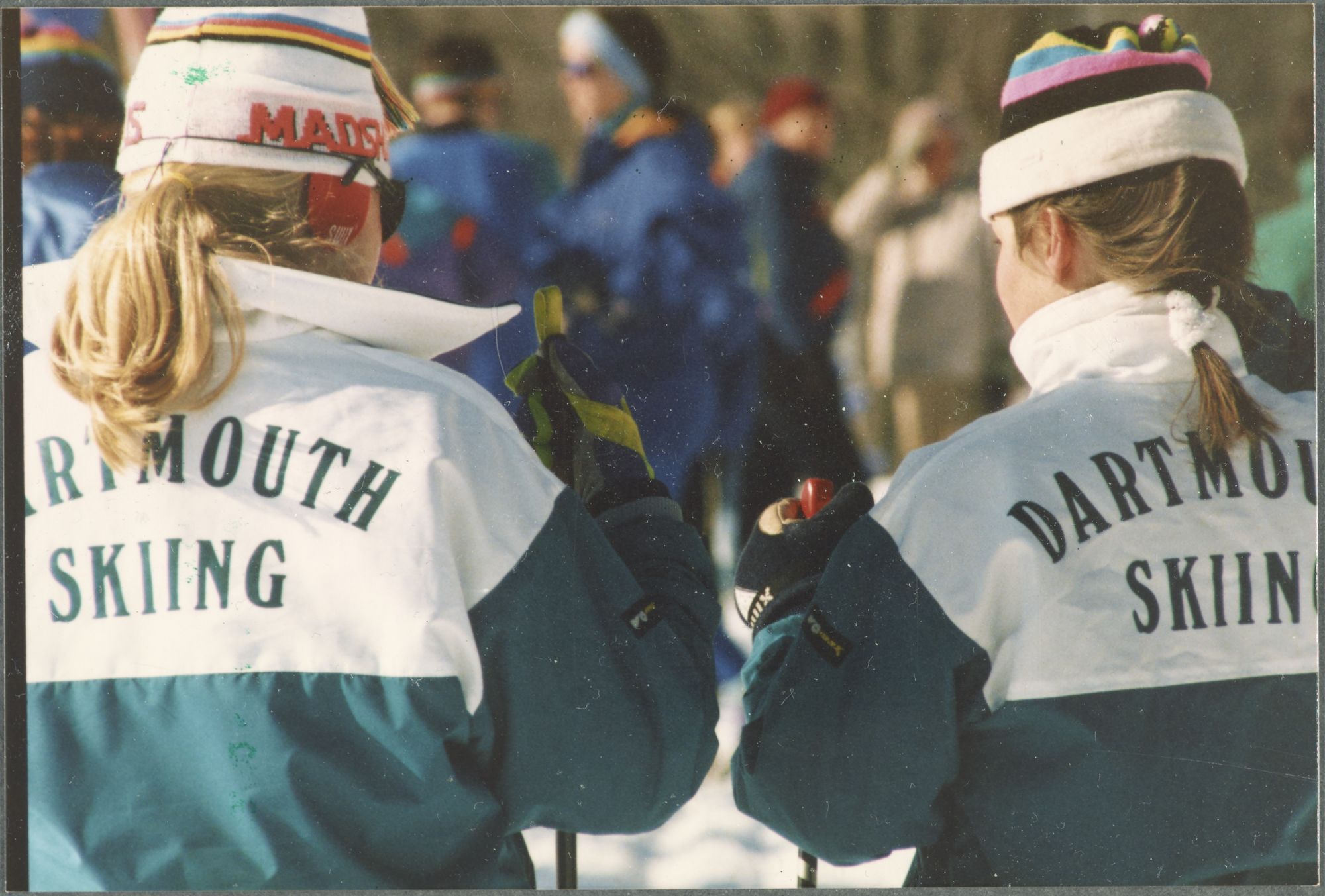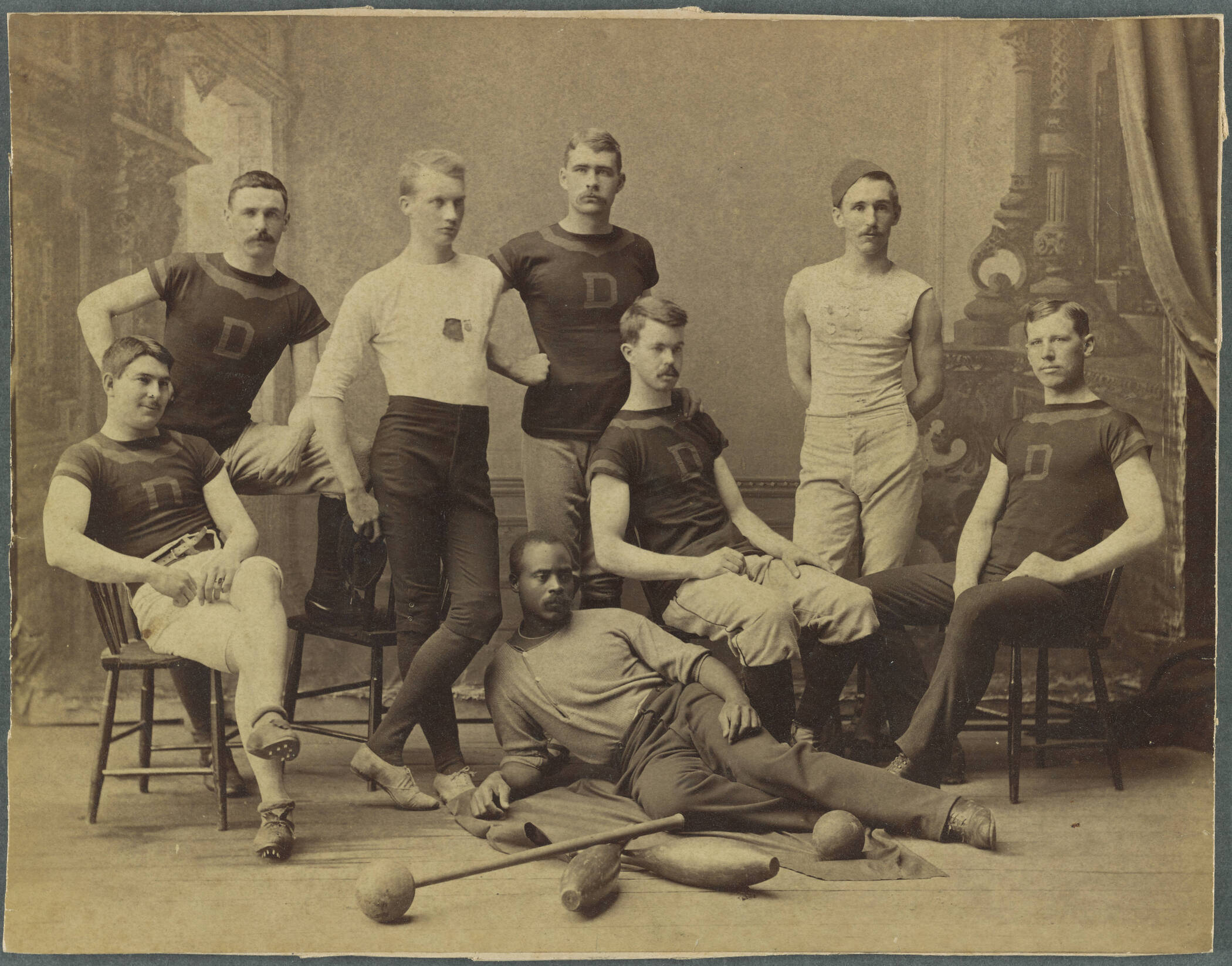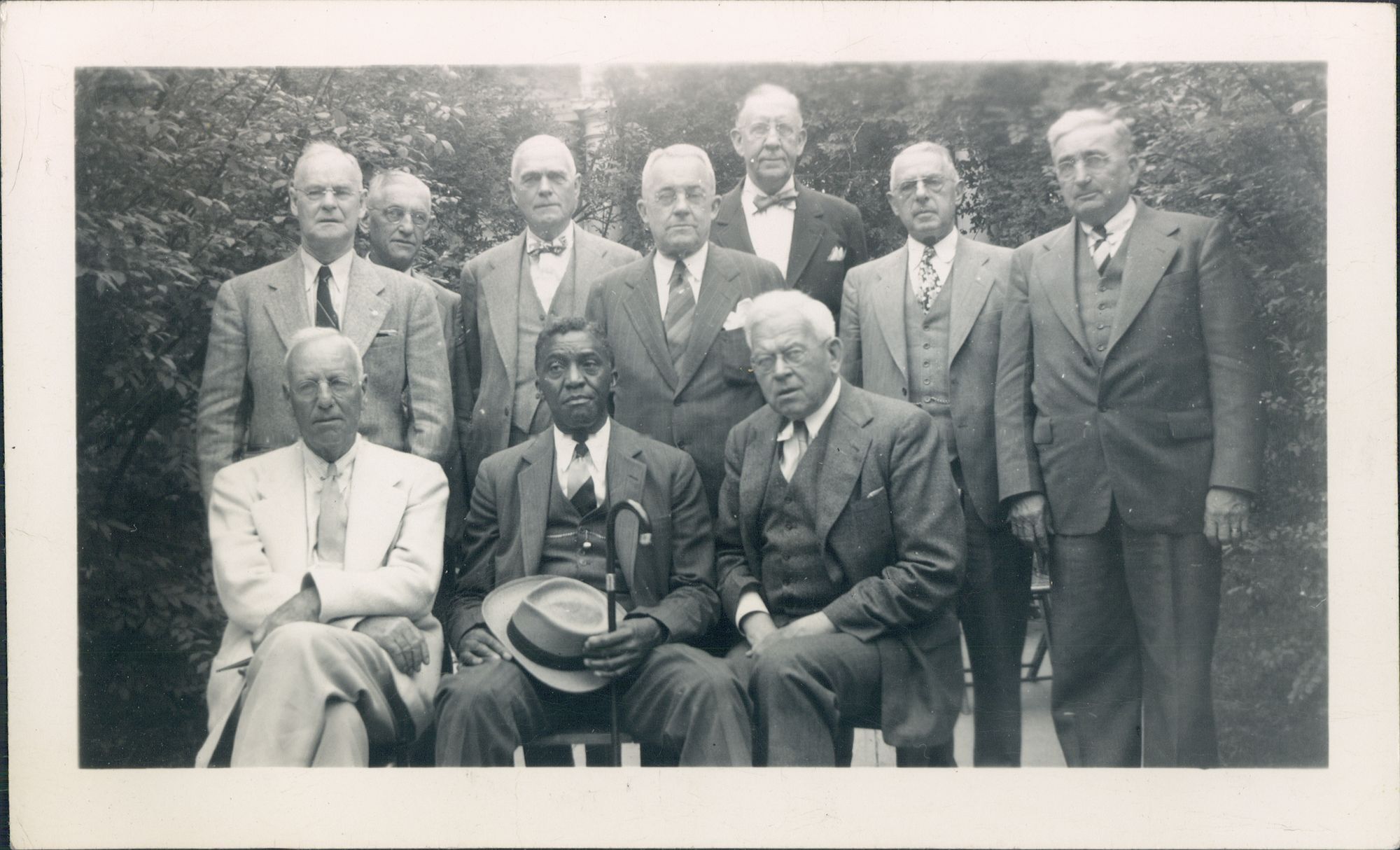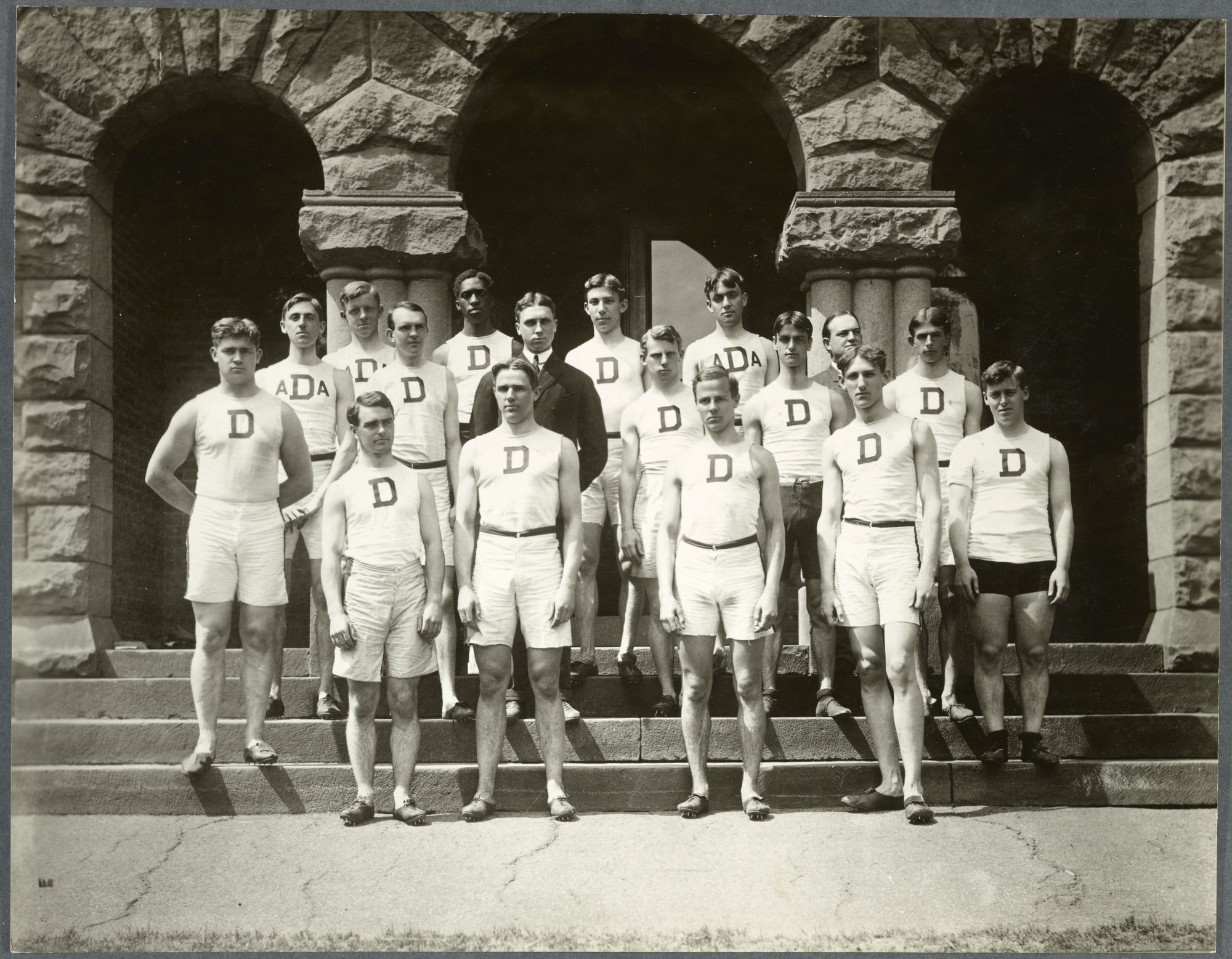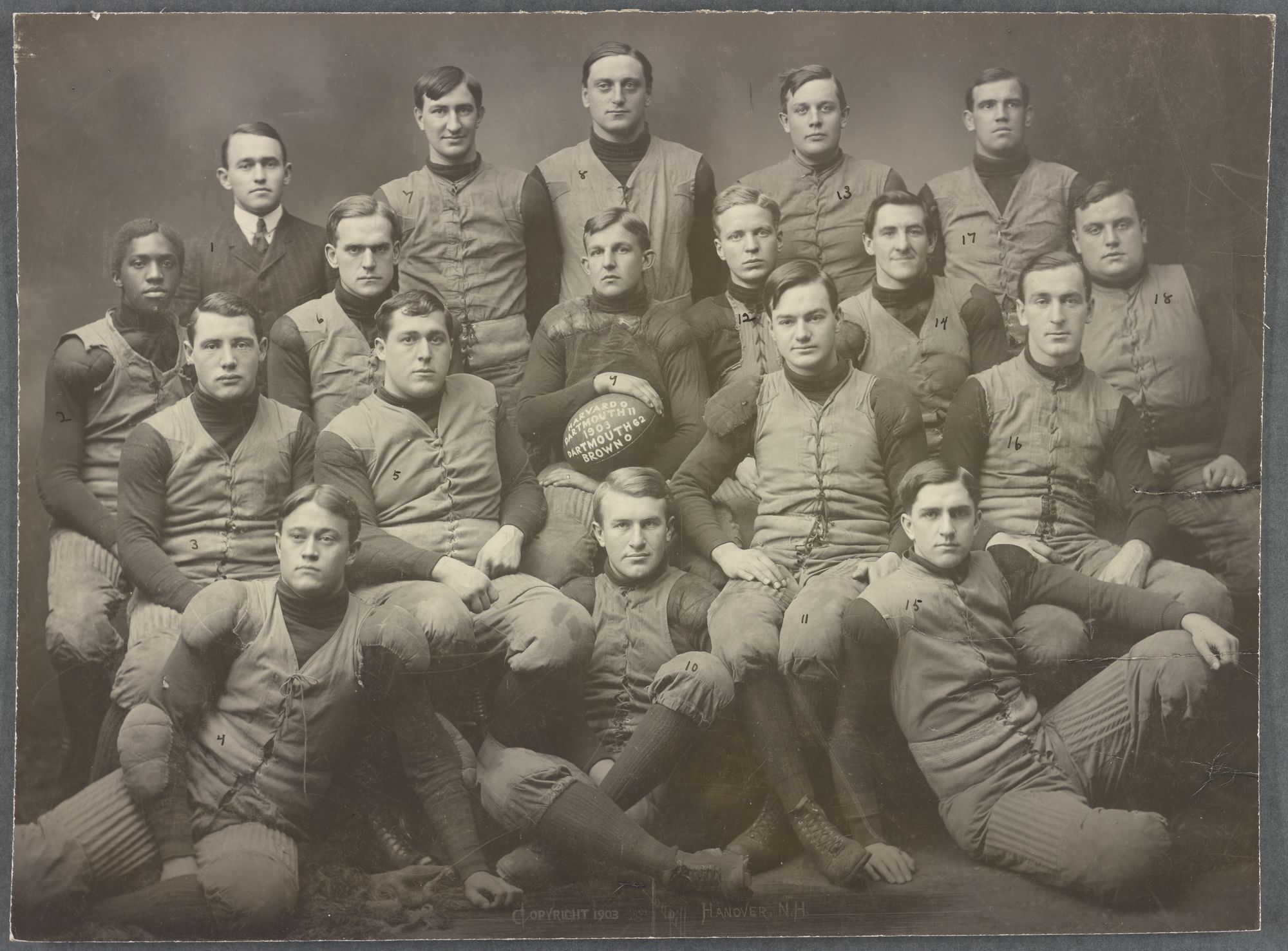"Yard by Yard": Athletic Adventures
Balancing an intense curriculum with the physical demands of college sports can be a trial of spirit for anyone, especially in the early days of sports medicine and leather pads. Never limiting their adventures to the fields, tracks, and slopes, Dartmouth's scholar athletes emerge as key players in the struggle for civil rights and social justice.
1880s and 1900s: Admitted to Dartmouth based on academic merit, young African American men such as Champion Waring, Julius Haynes, and Matthew Bullock positioned themselves as diligent students. Yet, their ability as athletes largely overshadowed their scholastic achievements in the public eye. Overcoming these odds, Waring, Haynes, and Bullock all went on to establish careers in predominately white professions such as education, medicine, and law.
1940s: When the United States entered World War II, Dartmouth's skiers were prize recruits for the US Army's 10th Mountain Division, which saw intense combat on some of Europe's most treacherous slopes.
1970s: In 1972, with the passing of Title IX and co-education, the College's first official female athletes put on the Dartmouth green. In the same era, Native American athletes and students called for justice and the unofficial Indian mascot was finally retired after nearly 50 years of use.
2010s: With more than 75% of all students engaged in sports, Dartmouth's athletic community continues to reflect the spirit of the College's student body. In the spirit of acceptance and equality, the College has celebrated the end to discrimination in public spaces, such as locker rooms, for all individuals, including the LGBTQ community. In 2018, the College welcomed the first known female Division I football coach, Callie Brownson.
Previous: "Joy in Learning" -- Next: "No Very Good Reason for Not Doing This"

